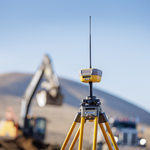Initial use cases include aortic stenosis screenings in clinics and skilled nursing facilities
AISAP and Amavita Heart and Vascular Health Bring Cardiac Diagnostics to Underserved Florida Communities with AI-Powered Point-of-Care Ultrasound
MEDIA CONTACT:
Sam Choinski
Pazanga Health Communications
schoinski@pazangahealth.com
(860) 301-5058
AISAP, a medical technology company developing AI-powered Point-of-Care Assisted Diagnosis (POCAD™) solutions to transform medical ultrasound, has partnered with Miami-based Amavita Heart and Vascular Health to offer its first-of-a-kind, AI-powered AISAP CARDIO point-of-care ultrasound (POCUS) software platform outside of hospital settings to underserved communities in South Florida. Amavita, led by Founder and Medical Director Pedro Martinez-Clark, MD, FACC, has begun deploying the software in screenings for aortic stenosis and other valvular diseases in its clinics, local skilled nursing facilities, and via mobile screening units in underserved communities with high minority populations.
This press release features multimedia. View the full release here: https://www.businesswire.com/news/home/20250206098443/en/

AISAP's advanced AI-driven POCUS solution revolutionizes point-of-care diagnostics, providing comprehensive ultrasound imaging for heart valves, heart failure, and other critical cardiac conditions. With seamless integration into PACS, EMRs, and telemedicine platforms, this HIPAA-compliant system supports healthcare professionals in emergency rooms, internal medicine, primary care, and cardiology clinics and groups. Empowering timely, accurate diagnoses, AISAP's technology enhances health equity and clinical efficiency, from the emergency department to remote rural care. Designed to meet stringent healthcare and FDA standards, it represents a transformative leap in cardiology and healthcare AI innovation. (Photo: Business Wire)
“Aortic stenosis is a devastating disease with a very high mortality rate if left untreated,” said Dr. Martinez-Clark. “Using AISAP CARDIO, we aim to dramatically increase early detection rates and offer patients timely intervention so that they can go on to live healthy lives. As a point-of-care assisted diagnostic, the software could revolutionize valvular and heart failure diagnoses and early treatment, as it allows us to reach out to those most in need, especially minority communities where access to timely care remains challenging. The impact on population health could be significant.”
To date, Dr. Martinez-Clark and his colleagues at Amavita have screened approximately 60 patients using the AISAP CARDIO. Those screenings have detected significant valvular pathologies in 28 percent of patients.
An estimated one in four patients with moderate to severe aortic stenosis goes undiagnosed, and the rates of diagnosis tend to be worse among unrepresented minority groups1. The consequence of underdiagnosing aortic stenosis is significant, as the mortality rate of untreated disease can be as high as 50 percent within one year2. Moreover, untreated cases result in approximately $10,000 in increased healthcare expenses per patient per year versus treated case3. Yet up to 50 percent of these cases are missed until post-mortem4.
“We are grateful that Medicare and private payers in the U.S. recognize the critical human and financial impact of underdiagnosing diseases like aortic stenosis and are reimbursing for solutions like AISAP CARDIO,” added Dr. Martinez-Clark. “This is a technology that can be both life-saving for patients and game-changing for the healthcare system.”
“AISAP is proud to collaborate with forward-thinking practices and community partners like Amavita,” said Roni Attali, AISAP U.S. general manager and chief sales officer. “We commend Dr. Martinez-Clark on his mission to use our technology to address healthcare disparities and ensure that no patient suffering from valvular disease is left behind.”
AISAP CARDIO is a cloud-based platform that combines four computer-assisted diagnosis (CADx) modules of valvular pathologies and eight key measurements into a single, comprehensive, cardiac ultrasound software package that automatically generates analyses, interpretations and billable reports. CARDIO empowers clinicians with basic scanning skills to accurately diagnose up to 90 percent of the most common cardiac structural and functional parameters right at the bedside within minutes. CARDIO was trained on hundreds of thousands of studies comprising over 24 million echo video clips. AISAP’s novel algorithms on POCUS devices has been validated in multi-national, multi-site, randomized, multi-reader, multi-case clinical trials at Mass General Brigham, Thomas Jefferson University Hospital, Mayo Clinic, Inova Fairfax Medical Campus, Crozer-Chester Medical Center and Stony Brook University Hospital.
AISAP CARDIO is indicated to provide diagnostic assessment and measurements of several key cardiac structural functional parameters, including: presence of valvular pathology (regurgitations of the mitral, tricuspid, aortic valves and aortic stenosis), and measurements of left ventricle ejection fraction (LVEF), right and left ventricular dimensions, right ventricular fractional area change (RV FAC), atrial areas, ascending aorta diameter, and inferior vena cava (IVC) diameter.
AISAP CARDIO is a vendor-agnostic, scalable solution that seamlessly integrates into the clinical workflow, as well as existing EHR/EMR and PACS systems.
About AISAP
AISAP LTD is a pioneering company at the intersection of artificial intelligence and healthcare with a mission to transform healthcare delivery through its flagship product, AISAP CARDIO, which for the first time delivers POCAD™ (Point-of-Care Assisted Diagnosis). The platform enables clinicians to perform comprehensive, AI-powered ultrasound diagnostics anywhere, anytime, ensuring that advanced medical care is accessible at the patient’s bedside, whether in a hospital, clinic or rural setting.
AISAP’s intuitive and secure SaaS platform is designed to empower healthcare providers by streamlining diagnosis processes, enhancing clinical efficiency, and improving patient outcomes.
Please visit www.aisap.ai for more information or to book a demo. Follow AISAP on LinkedIn for more updates.
References
- Reisman, A. M., & Elmariah, S. (2024). A Review of "Access to Care" Issues in Aortic Stenosis Patients: A Negative Report Card. Structural Heart. https://doi.org/10.1016/j.shj.2024.100351
- Leon, M.B., Smith, C.R., Mack, M., et al; PARTNER Trial Investigators. Transcatheter aortic-valve implantation for aortic stenosis in patients who cannot undergo surgery. N Engl J Med. 2010;363(17):1597-1607.
- Sethi, A., Elmariah, S., Gunnarson, C., et al. The cost of waiting for a transcatheter aortic valve replacement (TAVR) in medicare beneficiaries with severe aortic stenosis. Structural Heart (2024).
- Das, P., Pocock, C., Chambers, J. The patient with a systolic murmur: severe aortic stenosis may be missed during cardiovascular examination. QJM 2000 Oct;93(10):685-8.
View source version on businesswire.com: https://www.businesswire.com/news/home/20250206098443/en/
 Business wire
Business wire 









Add Comment